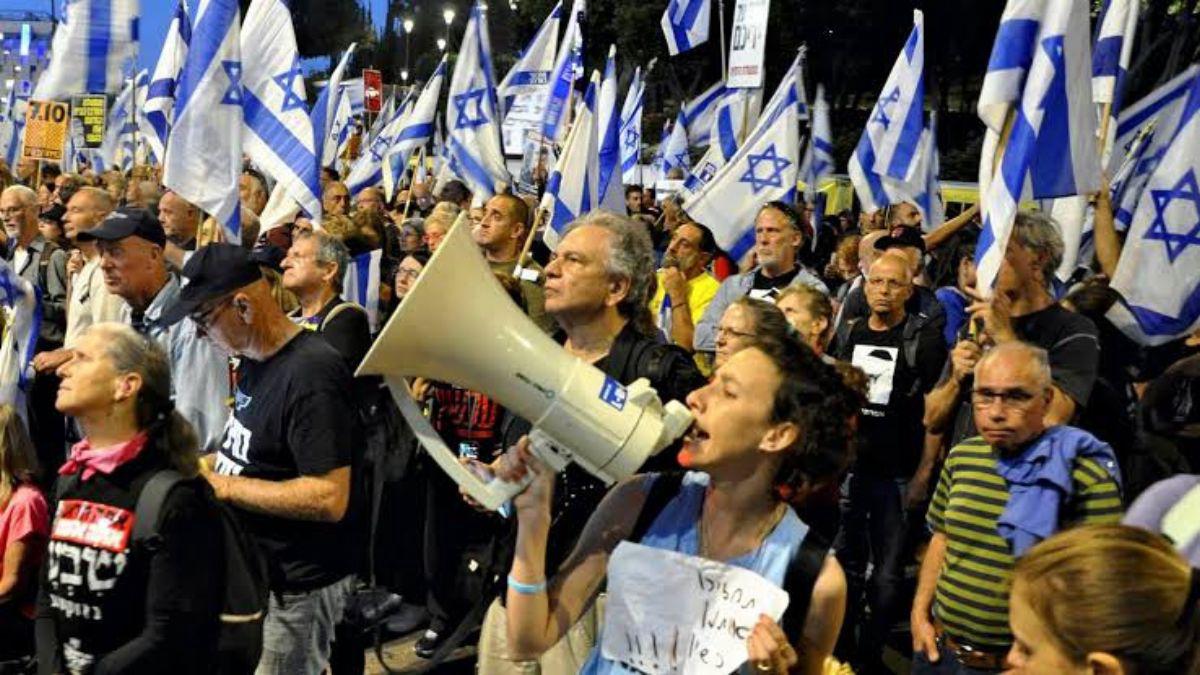Amidst a profound national crisis, Israeli protesters have escalated their demonstrations, driven by the recent discovery of six hostages murdered by Hamas in a Gaza tunnel. On Monday evening, demonstrators carried empty coffins past the residence of Prime Minister Benjamin Netanyahu, symbolizing the heavy burden he bears following the tragic deaths. The hostages, who were killed just before a potential rescue operation, have become a focal point for public outrage.
In Tel Aviv, tens of thousands took to the streets in one of the largest protests since the outbreak of the Gaza conflict. Protesters like Anna Rubin expressed their frustration, highlighting how the inability to save the hostages has become a breaking point for many Israelis. The intensity of the demonstrations reflects a growing sentiment that the government’s handling of the situation has been inadequate.
Despite the scale of the protests, Netanyahu has maintained his stance against concessions in negotiations for a ceasefire and hostage deal. In a press conference, he vehemently rejected calls for further compromises, arguing that making concessions would embolden Hamas. His refusal to alter his position comes amid growing criticism from international leaders, including U.S. President Joe Biden, who has suggested that Israel’s approach to the ceasefire negotiations is insufficient.
The protests, while massive, have not fully mobilized the country. A one-day general strike called by the labor union saw only partial adherence, with many businesses in Tel Aviv remaining open. This selective response to the strike reflects a complex mood within the Israeli public, balancing between outrage over the hostages and the practicalities of daily life.
Political analysts suggest that Netanyahu’s position remains precarious, particularly if internal pressure from his defense minister, Yoav Gallant, and continued international demands intensify. However, Netanyahu’s parliamentary majority provides him with a buffer against immediate political upheaval. The ongoing protests and the call for a more effective response to the Gaza crisis continue to challenge Netanyahu’s leadership, indicating that the current turmoil may mark a significant turning point in Israeli politics.

